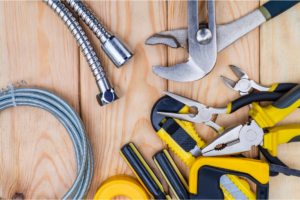Things Not to Do When Listing Your House for Sale
Things Not to Do When Listing Your House for Sale
Selling your home can be an exciting yet challenging process. It’s not just about slapping a “For Sale” sign on your lawn and waiting for offers to roll in. It’s a nuanced journey that requires strategic planning, preparation, and understanding of the real estate market. One misstep can potentially cost you a great deal of time and money.
How you present your home to potential buyers, the pricing strategy you use, and how you negotiate can all play significant roles in how quickly you sell your house and how much profit you make. And while some mistakes during this process are common and easy to rectify, others can significantly impact the desirability of your home and its final selling price.
This guide aims to help you navigate the process of listing your home for sale and steer clear of common mistakes. By understanding the “don’ts” of listing a house for sale, you can make more informed decisions and increase the likelihood of a successful, profitable sale.
In this comprehensive guide, we’ll walk you through some common mistakes that sellers often make, including overpricing, neglecting necessary repairs, not properly staging, using poor quality photos, not being flexible with showings, not considering professional help, ignoring curb appeal, being present during showings, not disclosing known issues, not cleaning thoroughly, not considering timing, and ignoring feedback.
Each of these elements is critical, and by understanding them, you can significantly improve your selling experience. With careful attention and a thoughtful approach, you can avoid these pitfalls and ensure you’re doing everything possible to attract potential buyers to your property.
With a better understanding of what not to do when listing your house for sale, you’re already well on your way to achieving your selling goals. Let’s delve deeper into these points to ensure your house-selling process is as smooth and profitable as possible.
Overpricing Your Home
Pricing your home correctly is one of the most critical aspects of a successful real estate sale. However, it’s a common mistake for sellers to overprice their homes due to emotional attachment, overestimating the value of home improvements, or simply wanting to leave room for negotiations. Unfortunately, overpricing a home can lead to severe consequences that hinder selling.
The Repercussions of Overpricing
First, overpriced homes can languish on the market for an extended period. Thanks to online listings and resources, buyers are more knowledgeable than ever and can easily spot an overpriced home. When they do, they’re more likely to bypass it and look for fairly priced alternatives.
The longer your home sits on the market, the more it can develop a stigma. Potential buyers may wonder why no one else has snapped up the property, leading them to believe something is wrong. This stigma can further lower the interest in your property, causing it to sit on the market even longer and potentially forcing you to reduce your price drastically to get attention.
Second, overpriced homes often miss their target audience. Most homebuyers start their search online, setting filters according to their budget. If your home is priced above its actual value, it will not appear in the search results of buyers who could be the perfect fit for it. For example, if your property should be listed at $400,000, but you’ve priced it at $450,000, it will miss all potential buyers who have set their maximum search parameter at $400,000.
The Benefits of Pricing Correctly
Instead of overpricing, it’s advantageous to price your home correctly or even slightly under its market value. A fair price can attract more potential buyers, leading to more offers. Sometimes, this can result in a bidding war, driving the final sale price up, which would be in your best interest as the seller.
When you price your home correctly, it appears in the correct search brackets and will likely be found by motivated and serious buyers. Moreover, a correctly priced home gives the impression that the seller is realistic and serious about selling, making potential buyers more comfortable making an offer.
Hiring a professional appraiser or real estate agent is beneficial to price your home correctly. They can conduct a comparative market analysis by evaluating similar homes in your area that have recently sold, adjusting for unique features of your property. Their expertise will help you understand the true market value of your home and avoid the trap of overpricing.
In conclusion, while it’s tempting to aim high when listing your house, it’s essential to stay grounded in the reality of your local real estate market. Remember, a well-priced home will likely sell faster and could fetch you more. Overpricing your home can lead to more harm than good, making it one of the top things to avoid when listing your house for sale.
Neglecting Necessary Repairs
 When preparing your home for sale, it’s essential not to overlook the importance of making necessary repairs, no matter how big or small they might seem. While it can be tempting to save money and time by neglecting to fix that dripping faucet or the cracked tile in the kitchen, such oversights can create a negative impression and potentially lower the final sale price.
When preparing your home for sale, it’s essential not to overlook the importance of making necessary repairs, no matter how big or small they might seem. While it can be tempting to save money and time by neglecting to fix that dripping faucet or the cracked tile in the kitchen, such oversights can create a negative impression and potentially lower the final sale price.
The Importance of Addressing Repairs Before Listing
Potential buyers often view homes critically. Even minor issues can be red flags, leading them to question the home’s overall maintenance and quality. Remember, buyers, are making a significant investment and don’t want to inherit a list of repair tasks.
A home in excellent condition demonstrates that it has been well-maintained, which can give buyers confidence and peace of mind. It can also help your home stand out from the competition, especially in a buyer’s market where many properties exist.
Significant issues, such as a faulty HVAC system or a leaky roof, can be deal-breakers. They not only cost a lot to repair but can also signal neglect, leading buyers to wonder what other problems could be lurking.
How Unresolved Repairs Can Affect the Sale Price
Unresolved repairs can give buyers leverage to negotiate a lower price. They may estimate the cost of fixing the issues, then subtract that from their offer, often overestimating the cost. This can lead to receiving offers well below your asking price.
Some buyers might even decide to walk away if they feel overwhelmed by the number of repairs, costing you potential sales.
Proactive Repairs Are Beneficial
It’s wise to address repair issues proactively before listing your home for sale. Consider hiring a professional home inspector to perform a pre-listing home inspection. They can identify problems that might turn off potential buyers or lower your home’s value. This information lets you choose which repairs to make to maximize your home’s appeal.
Remember that every home is different, and what repairs should be made can vary greatly. The goal should be to present a home that feels inviting and well-cared-for and instills confidence in potential buyers, not present them with a to-do list.
In summary, a well-maintained home can create a positive impression that aids in a quicker sale and possibly a higher selling price. So, when preparing to list your house for sale, one of the crucial things to avoid is neglecting necessary repairs. Addressing these issues, head-on increases your chances of a smooth and successful sale.
Not Properly Staging Your Home
Staging is a critical component of the home selling process. It involves strategically arranging furniture and decor to showcase your home’s best features and help potential buyers envision themselves living there. Unfortunately, many sellers underestimate the power of proper staging or make common mistakes that can detract from their home’s appeal.
The Importance of Staging
First impressions matter significantly in real estate. When potential buyers walk into your home, you want them to feel welcomed, comfortable, and, most importantly, to be able to imagine themselves living there. This is where staging comes in. A well-staged home accentuates its positive aspects and makes the space relatable and aspirational.
Staging can make rooms appear larger, highlight unique architectural features, and even distract from some less desirable aspects. It helps potential buyers visualize how to utilize the space and see the home’s potential.
Common Staging Mistakes to Avoid
One common staging mistake is clutter. Clutter can make a home feel smaller and disorganized, distracting from the features you want to highlight. Before listing, declutter your home by removing unnecessary items from countertops, floors, and walls. Consider renting a storage unit to keep things out of sight.
Another mistake is over-personalization. While you want your home to feel warm and lived-in, too many personal items can prevent potential buyers from picturing themselves in the space. Family photos, private collections, and even bold design choices can be distracting. Aim for a balance between creating a home that feels inviting yet neutral enough for buyers to see it as a blank canvas for their lives.
Neglecting to stage unused or awkward spaces can also be a missed opportunity. Every square foot counts when selling your home. Transform a new nook into a reading area, or stage an awkward alcove as a mini office. Helping buyers see the potential in these spaces can add perceived value to your home.
Consider Professional Help
While you can stage your home yourself, consider hiring a professional home stager, especially if you’re unsure where to start or have a lot of space to cover. They have expertise in interior design and understand what homebuyers are looking for. They can objectively view your home and transform it in ways likely to appeal to a broad audience.
Remember, successful staging is about showcasing the property, not its possessions. Your goal should be to create an environment where potential buyers can emotionally connect and imagine their lives unfolding within the space.
In summary, don’t underestimate the value of properly staging your home when preparing to sell. By avoiding common mistakes and highlighting your home’s best features, you can make your property more appealing to potential buyers, potentially selling quicker and at a higher price.
Using Poor Quality Photos in Your Listing
 In our digital age, where most home buyers start searching online, the photographs you use to showcase your home in your listing can significantly impact the interest it garners. Many sellers underestimate the importance of high-quality, professional-looking photos, leading to a crucial mistake – using poor-quality photos in their listing.
In our digital age, where most home buyers start searching online, the photographs you use to showcase your home in your listing can significantly impact the interest it garners. Many sellers underestimate the importance of high-quality, professional-looking photos, leading to a crucial mistake – using poor-quality photos in their listing.
First Impressions Count
Potential buyers often sift through numerous online listings, and you usually have only a few seconds to grab their attention. High-quality photos can create a strong first impression, drawing buyers in and encouraging them to learn more about your property. On the contrary, if your listing is populated with dark, blurry, or unflattering images, buyers may scroll past your property without considering it.
Showcasing Your Home’s Best Features
Photos are not just to represent your property; they should highlight its best features and selling points. High-quality images can showcase these features in the best light if you’ve recently renovated the kitchen or your home boasts a beautiful garden. On the other hand, poor-quality photos may fail to highlight these attributes adequately, reducing your home’s perceived value.
Avoiding Misrepresentation
While making your home look its best is essential, it’s equally crucial not to misrepresent it. Avoid using wide-angle lenses excessively, as they can make rooms appear deceptively large. Ensure the photos accurately reflect your home’s size and layout. Misleading buyers can lead to disappointment during viewings and damage your credibility.
Hiring a Professional Photographer
Given the importance of good photography in real estate listings, it’s often worth investing in a professional photographer specializing in real estate. They understand how lighting and angles make your home look its best. They also have the necessary equipment to produce high-quality, appealing images. While hiring a professional may seem unnecessary, attracting more potential buyers and possibly increasing the final sale price can pay off.
In conclusion, using poor-quality photos in your listing is a mistake to avoid when selling your home. High-quality images can make your home more appealing, highlight its best features, and help it stand out in the crowded real estate market. Investing time and resources into capturing high-quality photos can give your listing a competitive edge, increase its perceived value, and attract more potential buyers.
Not Being Flexible with Showings
When it comes to selling your home, one aspect that can significantly impact the sale process is the availability of your property for viewing. Understandably, accommodating viewings can be inconvenient, especially if you’re still living on the property. However, not being flexible with showings can limit the number of potential buyers who see your home in person and potentially prolong the time it takes to sell your home.
The Importance of Home Showings
While online listings and virtual tours are valuable tools in today’s real estate market, nothing beats the effectiveness of an in-person visit. Showings allow potential buyers to connect with your property emotionally. They can visualize their life in your home, something that photos and videos may not fully accomplish.
Furthermore, buyers can inspect the property closely during a showing, giving them confidence in their potential investment. They can see, feel, and experience your home’s unique features, making it more memorable among the sea of properties they might consider.
Consequences of Limited Availability
You could be turning away potential buyers by restricting showings to a narrow window or frequently denying showing requests. Not everyone can adhere to a rigid viewing schedule due to various personal and professional commitments. Some buyers might see the limited availability as a sign that the selling process might be difficult, discouraging them from considering your property altogether.
Also, remember that real estate is often a time-sensitive market. Buyers usually have a specific timeline they’re working with, and if they can’t view your home when it’s convenient for them, they might move on to another property that is more accessible.
Striking a Balance with Showings
That said, you don’t need to make your home available 24/7. It’s about finding a balance between maintaining your privacy and lifestyle and being accommodating to potential buyers. Consider setting certain hours for showings that work with your schedule but also offer flexibility.
If possible, try not to be present during showings. Buyers tend to feel more comfortable exploring a property and asking questions about it to their real estate agent when the owner isn’t present.
In conclusion, being inflexible with showings is a pitfall to avoid when listing your house for sale. By accommodating potential buyers’ schedules for viewings, you increase the visibility of your property, making a quick sale more likely. Despite the inconvenience, the short-term compromise is usually worth the potential long-term gain – selling your home quickly and for an excellent price.
Not Considering a Professional Real Estate Agent
 Some sellers may sell their homes by themselves, known as a For Sale By Owner (FSBO) listing, to save money. While it’s true that this approach can save on commission fees, it’s not without its pitfalls. Selling a home involves intricate steps that professionals are trained to navigate. You could make costly mistakes if you’re not well-versed in real estate transactions. Therefore, not considering a professional real estate agent is often a mistake when listing your house for sale.
Some sellers may sell their homes by themselves, known as a For Sale By Owner (FSBO) listing, to save money. While it’s true that this approach can save on commission fees, it’s not without its pitfalls. Selling a home involves intricate steps that professionals are trained to navigate. You could make costly mistakes if you’re not well-versed in real estate transactions. Therefore, not considering a professional real estate agent is often a mistake when listing your house for sale.
The Value, a Real Estate Agent, Brings
Professional real estate agents bring a wealth of experience and resources to the table. They understand market trends and can help you price your home accurately to attract buyers. They can access extensive networks and marketing tools to ensure your home reaches a broad audience.
They’re skilled negotiators who can help you navigate offers and counteroffers, ensuring you get the best possible price for your home. They can also help you understand complex real estate contracts and legalities, protecting you from potential liabilities.
Agents also coordinate showings and field inquiries and filter serious buyers from those just looking, saving you much time and effort.
The Challenges of FSBO
Choosing the FSBO route means taking on all these responsibilities yourself. You’ll need to research to determine a competitive listing price, market your property, arrange and conduct showings, negotiate with buyers or their agents, and understand the legal paperwork involved. This can be time-consuming and stressful, especially if you’re juggling these tasks with other responsibilities.
Furthermore, FSBO homes sell for less than those listed with an agent. According to the National Association of Realtors, in 2020, the median price of FSBO homes was $217,900, whereas homes sold with the assistance of an agent had a median selling price of $295,000.
Choosing the Right Real Estate Agent
Choosing to work with a real estate agent does not mean you should hire just anyone. Finding an experienced, reliable professional familiar with your local market is essential. Interview potential agents, ask about their experience and marketing strategy, and check their references.
While a real estate agent’s services come at a cost, typically a percentage of the sale price, remember that their expertise and resources could result in a quicker sale and a higher selling price, potentially offsetting their fee.
In conclusion, while selling your home independently is possible, the knowledge, experience, and resources a professional real estate agent provides can be invaluable. The real estate market can be complex and stressful, but with a professional by your side, selling your home can become significantly easier and potentially more profitable.
Ignoring Curb Appeal
In selling a home, it’s easy to focus solely on the interior and neglect the exterior. However, ignoring your home’s curb appeal is a misstep that can undermine your sales efforts. Potential buyers start forming impressions about your property when they see it from the street. Buyers may not want to step inside if your home lacks curb appeal.
Curb Appeal Sets the First Impression
Curb appeal is a home’s exterior attractiveness when viewed from the street. It encompasses your home’s facade, lawn, landscaping, driveway, sidewalk, and front door. When a potential buyer visits your home, the curb appeal can set the tone for the entire showing. A home with high curb appeal can excite buyers and make them eager to see the rest of the house.
On the other hand, a home with poor curb appeal can negatively impact a buyer’s perception before they step inside. They may wonder if the interior has been as neglected as the exterior or believe the home requires too much work.
Boosting Your Home’s Curb Appeal
Improving your home’s curb appeal doesn’t have to be expensive or time-consuming. Here are some suggestions:
- Cleaning up: Remove trash or debris, clean the windows, and pressure wash the siding, driveway, and walkways.
- Landscaping: Mow the lawn, trim the shrubs, weed the garden, and add colorful flowers.
- Painting: A fresh coat of paint on the front door, trim, or shutters can make a big difference. Choose neutral, widely appealing colors.
- Fixing up: Replace or repair anything broken, like light fixtures, mailboxes, house numbers, or steps.
- Adding touches: Small details like a new welcome mat, updated outdoor lighting, or potted plants can create a welcoming entrance.
Investing in Curb Appeal
While it may seem like these efforts aren’t as important as what’s inside the house, remember that the goal is to attract as many potential buyers as possible. A home with a well-kept exterior can stand out in listing photos, attract more drive-by prospects, and create a positive first impression that carries into the rest of the home. Ignoring curb appeal can result in fewer showings and a lower selling price.
In conclusion, curb appeal is an important element in the home selling process. It’s often the first impression potential buyers have of your home, and a positive impression can go a long way toward a successful sale. Investing time and effort into boosting your home’s curb appeal can increase its attractiveness to potential buyers and possibly its final sale price.
Being Present During Showings
 It’s perfectly normal to want to be around when potential buyers are viewing your home. After all, who knows the property better than you? You may feel you can provide additional information or answer buyers’ questions. However, being present during showings is generally considered a mistake in the home-selling process.
It’s perfectly normal to want to be around when potential buyers are viewing your home. After all, who knows the property better than you? You may feel you can provide additional information or answer buyers’ questions. However, being present during showings is generally considered a mistake in the home-selling process.
Creating an Uncomfortable Atmosphere
Having the homeowner present during a viewing can create an uncomfortable atmosphere for potential buyers. Buyers may feel intruding on your space, making them reluctant to spend time in the home, explore thoroughly, or voice their thoughts openly. They may rush through the viewing and miss important features that could sway them toward purchasing your property.
Detracting from the Buyer’s Experience
The goal of a showing is to allow potential buyers to envision themselves living in the home. Your presence can interfere with this. Personal anecdotes or explanations about the house might clash with the buyer’s vision or tastes. For instance, explaining that a bedroom was used as a sewing room doesn’t help if the buyer doesn’t sew and would rather envision it as a home office.
Interfering with the Realtor’s Job
Real estate agents are professionals skilled at showing homes and highlighting their best features. They know how to read buyers’ reactions and tailor their pitches accordingly. They are also adept at handling objections or concerns that may arise during the viewing. Being present during the showing might unintentionally interfere with your agent’s ability to do their job effectively.
What to Do Instead
Instead of being present for showings, ensure the property is clean, well-lit, and inviting, then step away and let your realtor handle the rest. If potential buyers have questions the realtor can’t answer, they can contact you afterward. If you’re worried about security, remember that it’s in your agent’s best interest to supervise buyers and ensure nothing goes awry.
In conclusion, while wanting to oversee the process when potential buyers view your home is understandable, being present during showings can do more harm than good. By allowing buyers to explore your home comfortably and envision themselves living there, you can improve their viewing experience and increase their chances of receiving a fair offer.
Not Disclosing Known Issues
One of the biggest mistakes a seller can make when listing their house for sale is not disclosing known issues. Whether it’s a leaky basement, faulty wiring, or an old roof, hiding these issues from potential buyers can lead to serious legal consequences and damage your reputation. While it may be tempting to conceal these problems to secure a higher sale price, transparency and honesty are always the best policies in real estate transactions.
Legal Obligations
In most states, sellers are legally obliged to disclose any known defects about the property. These can be structural, like a crack in the foundation; mechanical, such as a malfunctioning HVAC system; or environmental, like radon gas. Disclosing known problems can lead to lawsuits, even after the completed sale.
Ethical Considerations
Beyond the legal implications, not disclosing known issues can also have an ethical impact. Selling a home with significant, undisclosed problems could cause harm to the buyer, especially if these issues pose a safety hazard. Being honest about known defects lets the buyer make an informed decision.
Impact on the Sale Process
Contrary to what some sellers might believe, disclosing known issues doesn’t necessarily mean your home won’t sell. Yes, it may affect the sale price, but it protects you from legal disputes. Many buyers appreciate transparency and may be willing to negotiate around known problems. They might ask for a price reduction, request repairs, or a credit at closing to handle the repairs themselves.
Additionally, most buyers will have a home inspection conducted before finalizing the purchase. This inspection will likely uncover significant issues, so it’s better to be upfront about them.
Professional Advice
Consult your realtor or real estate attorney if you’re unsure what must be disclosed. They can guide you on what you must legally disclose in your specific state. When in doubt, it’s generally better to tell.
In conclusion, failing to disclose known issues when listing your home for sale can lead to legal troubles and undermine trust with potential buyers. It’s always in your best interest to be transparent and honest about your home’s condition. This approach builds trust with potential buyers, may help facilitate negotiations, and ultimately protects you from future disputes.
Not Properly Cleaning Your Home
 When listing your house for sale, it’s essential to present it in its best possible light. One common mistake sellers make is improperly cleaning their homes before showings and open houses. A clean and well-maintained home creates a positive first impression and suggests to potential buyers that the property has been well cared for. Neglecting to clean can be a major turnoff for buyers and may hinder your chances of selling quickly and at a desirable price.
When listing your house for sale, it’s essential to present it in its best possible light. One common mistake sellers make is improperly cleaning their homes before showings and open houses. A clean and well-maintained home creates a positive first impression and suggests to potential buyers that the property has been well cared for. Neglecting to clean can be a major turnoff for buyers and may hinder your chances of selling quickly and at a desirable price.
The Importance of Cleaning
A clean home is more inviting and appealing to potential buyers. It allows them to envision themselves living in the space and creates a positive emotional connection. It also conveys a sense of pride in ownership and demonstrates that the home has been well-maintained.
Cleaning your home thoroughly also helps to remove any unpleasant odors, which can be a major deterrent to buyers. Lingering smells from pets, cooking, or smoking can leave a negative impression, making it difficult for buyers to imagine themselves in the space.
Areas to Focus on
Pay attention to visible and hidden areas when preparing your home for showings. Here are some key areas to focus on:
- Declutter: Remove excess personal items, knick-knacks, and unnecessary furniture to create a sense of space and allow potential buyers to visualize their belongings in the home.
- Deep Clean: Thoroughly clean all surfaces, including countertops, floors, windows, and fixtures. Pay extra attention to areas like kitchens and bathrooms, where cleanliness is especially important.
- Odor Control: Clean carpets, upholstery, and curtains to eliminate unpleasant odors. Use air fresheners or open windows to create a fresh and inviting scent.
- Outdoor Spaces: Remember the exterior of your home. Clean the yard, trim the lawn, prune bushes, and ensure the entryway is clean and well-maintained.
- Professional Cleaning: Consider hiring professional cleaners, especially for deep cleaning tasks like carpets, upholstery, or tile grout. They have the expertise and equipment to achieve a new result.
Keeping Up with Maintenance
In addition to cleaning, it’s important to address any necessary maintenance tasks. Fixing leaky faucets, repairing cracked tiles, or replacing burnt-out light bulbs can significantly affect your home’s overall impression.
Final Touches Before Showings
Before each showing or open house, perform a quick once-over to ensure everything is tidy and presentable. Make beds, straighten pillows, close toilet lids, and clear away personal items. Fresh flowers or a bowl of fruit can add a nice touch.
In conclusion, not properly cleaning your home is a mistake that can impact potential buyers’ perception of your property. Taking the time to thoroughly clean and maintain your home before showings can enhance its appeal, create a positive first impression, and increase the chances of a successful and expedient sale.
Not Considering the Timing or Season of Sale
When listing your house for sale, it’s important to consider the timing and season of the sale. The real estate market fluctuates throughout the year, and weather, holidays, and local market conditions can impact the selling process. Not considering these factors can lead to longer days on the market, fewer potential buyers, or even a lower sale price. Therefore, it’s crucial to consider the timing and season of your sale carefully.
Understanding the Real Estate Market
Real estate markets can experience seasonal fluctuations. While the specific patterns may vary based on location, certain trends tend to hold in many areas. Spring and early summer are typically considered the prime seasons for home sales, as the weather is favorable, and families often prefer to move during the summer break. The market tends to be more active during these months, with higher buyer demand.
On the other hand, the winter and holiday seasons often slow down the real estate market. Buyers may be preoccupied with holiday preparations or less motivated to move during the colder weather. However, this can vary depending on your local market conditions. In some regions, winter can be an opportune time to sell as there may be less competition from other sellers.
Considering Local Market Conditions
In addition to considering the general market trends, it is crucial to pay attention to the specific conditions in your local area. Factors such as job market stability, economic conditions, and supply and demand dynamics can all influence the timing of your sale. Consult a local real estate agent who knows your specific market to understand the best time to sell your home.
Seasonal Maintenance and Appeal
The season in which you sell your home can also impact its appeal. During the spring and summer, you can showcase your property’s outdoor spaces, such as a well-maintained garden or a beautiful patio. In the fall, you can highlight the cozy features of your home, such as a fireplace or warm color schemes. In the winter, you can create a welcoming ambiance with tasteful holiday decorations. Aligning the seasonal features of your home with the time of sale can enhance its attractiveness to potential buyers.
Flexibility and Personal Circumstances
While market trends and seasonal considerations are important, it’s also crucial to consider your circumstances and needs. If you’re facing a time-sensitive situation, such as a job relocation, you may need to adjust your timing accordingly. Work with your real estate agent to determine the best approach to meet market conditions and your requirements.
In conclusion, not considering the timing or season of your sale can impact the selling process. Understanding the market trends and local conditions and aligning the features of your home with the appropriate season can enhance your chances of a successful sale. By carefully evaluating the timing and seasonality factors, you can optimize your selling strategy and potentially achieve a quicker and more favorable outcome.
Ignoring Feedback from Potential Buyers
 When selling your home, listening to and considering feedback from potential buyers is crucial. Feedback provides valuable insights into how your property is perceived in the market and can help you make necessary adjustments to increase its appeal. Ignoring or dismissing feedback without proper consideration can hinder your ability to sell your home efficiently and at a desirable price.
When selling your home, listening to and considering feedback from potential buyers is crucial. Feedback provides valuable insights into how your property is perceived in the market and can help you make necessary adjustments to increase its appeal. Ignoring or dismissing feedback without proper consideration can hinder your ability to sell your home efficiently and at a desirable price.
The Value of Feedback
Feedback from potential buyers offers a unique perspective on your home’s strengths and weaknesses. It can shed light on aspects that may deter buyers or areas that require improvement. This feedback can be gathered through various channels, such as your real estate agent, online reviews, or direct communication with interested buyers.
By paying attention to feedback, you can gain insights into issues you may not have noticed or considered. It allows you to address concerns, make necessary changes, and present your home in a way that appeals to a broader range of potential buyers.
Addressing Concerns and Making Adjustments
If feedback consistently highlights certain issues, it’s essential to take them seriously and address them. For example, if multiple buyers express concerns about the dated kitchen, you may want to consider updating it to attract more interest. Similarly, if buyers mention that the paint color in a room is too bold or off-putting, repainting in a more neutral tone can help create a broader appeal.
While it’s not feasible or necessary to address every individual preference, paying attention to consistent feedback patterns can guide you in making strategic improvements that have the potential to increase your home’s marketability.
Working with Your Real Estate Agent
Your real estate agent is a valuable resource for gathering and interpreting feedback. Based on their experience and knowledge of the market, they can provide insights into common buyer concerns and preferences.
Your agent can also facilitate the collection of feedback from potential buyers and help you evaluate the feedback objectively. They can guide which issues should be prioritized and how to address them effectively within your budget and timeline.
Adapting and Improving
Remember that feedback is not meant to be personal criticism but rather an opportunity for improvement. Being open to constructive feedback and making necessary adjustments can significantly enhance your home’s appeal and increase your chances of a successful sale.
In conclusion, ignoring feedback from potential buyers is a mistake that can hinder your ability to sell your home efficiently. By actively seeking and considering feedback, you can gain valuable insights, address concerns, and make necessary adjustments that enhance your home’s appeal in the market. Working with your real estate agent and being open to constructive feedback can help you position your home for a successful sale.
To learn more details, let’s talk with Amar REALTOR®
Let’s schedule a meeting to review all your Real Estate goals!
![]()
Please Click to schedule a time on my online calendar at no cost!
https://www.amarrealtor.com/meetingwithamarrealtor/
Contact Amar REALTOR® today for more information about Buying/Selling a Home in the Bay Area!
Amar REALTOR® offers expert real estate services with proven results in the Bay Area Housing Market, including Homes for sale in Santa Clara County, San Mateo County, Contra Costa County, and Alameda County.
More Interesting Information about Bay-Area Real Estate
Don’t Get Burned: The Risks of Hiring Unlicensed Contractors
The Dangers of Hiring Unlicensed Contractors: Protecting Your Home and Finances
First-Time Homebuyers: Types Of Mortgages
Renting vs. Buying – Which Is Better?
The Risks of Unlicensed Contractors
First-Time Homebuyers: What You Need To Know Before Relocating?
